Introduction: The Miracle Tree for Modern Wellness
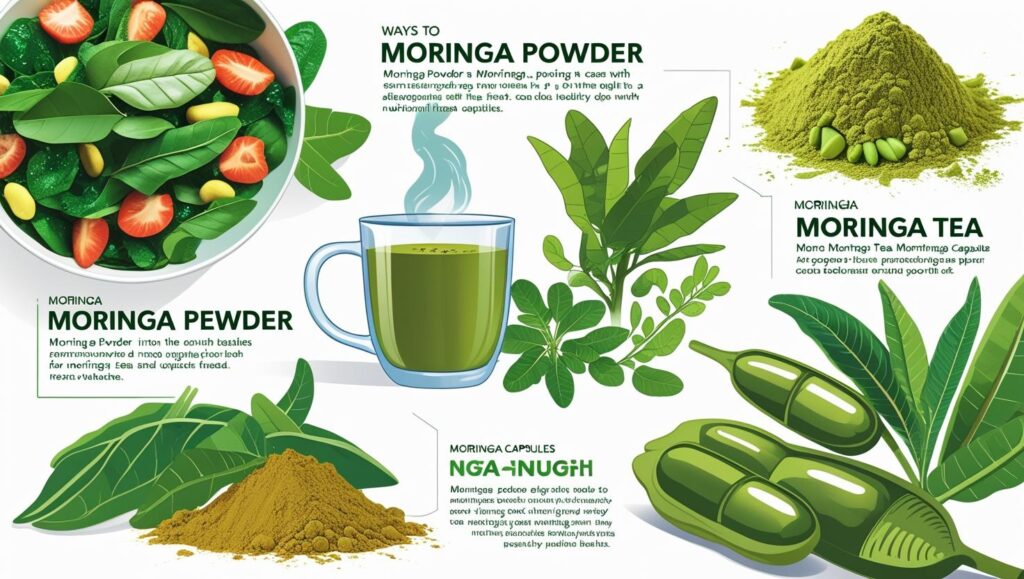
In our fast-paced world where nutritional deficiencies are common, nature provides a remarkable solution: Moringa oleifera. This “miracle tree,” native to parts of Africa and Asia, has been used for centuries in Ayurvedic and traditional medicine. Today, modern science confirms what ancient healers knew—moringa is one of the most nutrient-dense superfoods on the planet.
This guide will explore:
✔ Moringa’s unmatched nutritional profile
✔ 5 science-backed health benefits
✔ Delicious ways to incorporate it into your diet
✔ Potential side effects and precautions
✔ Answers to frequently asked questions
Whether you’re looking to boost energy, enhance immunity, or improve overall wellness, moringa offers a natural, plant-based solution.
1. Moringa’s Nutritional Powerhouse: Why It Stands Out
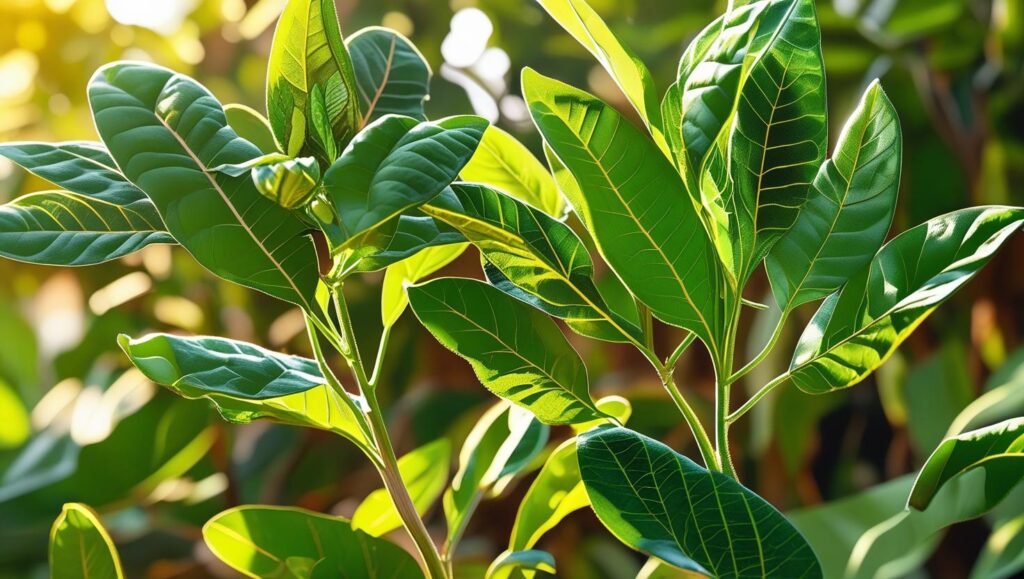
Macronutrient Breakdown (Per 100g Dried Leaves)
- Protein: 9.4g (Rivals Greek yogurt)
- Fiber: 2g (Supports digestion)
- Healthy fats: 1.4g (Includes omega-3s)
Vitamin Content That Shocks Nutritionists
- Vitamin A: 378% DV (4x carrots)
- Vitamin C: 51% DV (7x oranges)
- Vitamin E: 16% DV (Powerful antioxidant)
- B Vitamins: Especially rich in B6 (Supports metabolism)
Mineral Riches That Beat Common Superfoods
- Calcium: 185% DV (4x milk)
- Iron: 21% DV (3x spinach)
- Potassium: 337mg (More than bananas)
- Magnesium: 147mg (Supports 300+ enzyme reactions)
Unique Antioxidants Found in Moringa
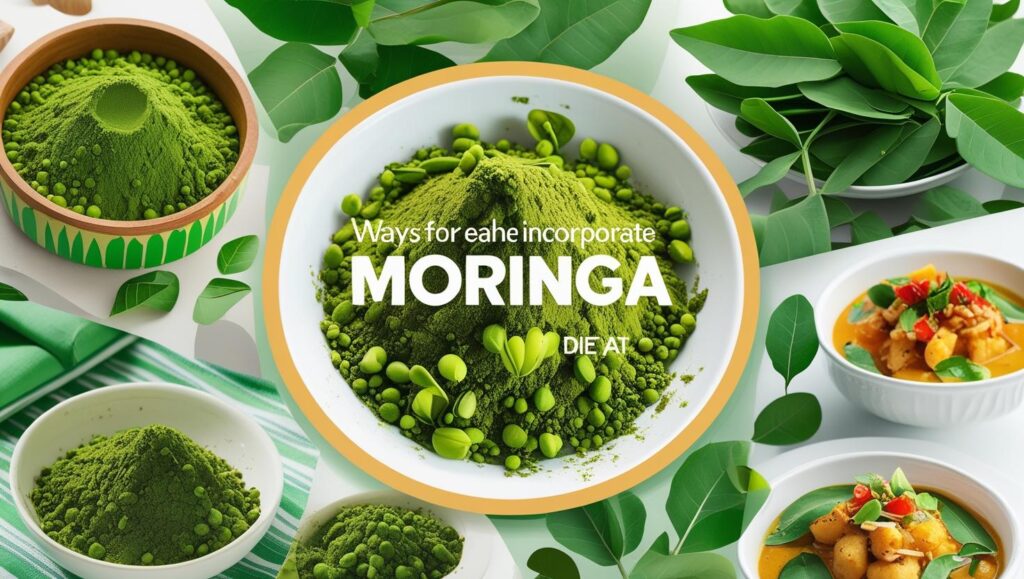
- Quercetin: Lowers blood pressure
- Chlorogenic Acid: Regulates blood sugar
- Kaempferol: Fights inflammation
Comparison Table: Moringa vs. Common Superfoods
| Nutrient | Moringa | Spinach | Kale | Matcha |
|---|---|---|---|---|
| Protein | 9.4g | 2.9g | 2.9g | 2.5g |
| Vitamin A | 378% DV | 188% DV | 133% DV | 0% |
| Calcium | 185% DV | 9% DV | 15% DV | 2% DV |
| Iron | 21% DV | 15% DV | 5% DV | 12% DV |
2. Top 5 Science-Backed Health Benefits
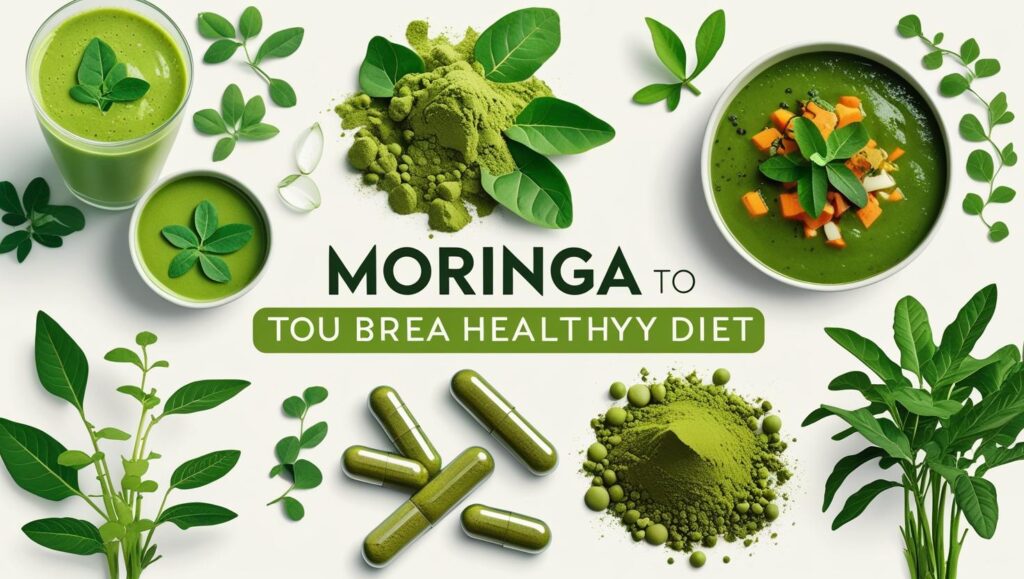
1. Energy Enhancement & Anemia Prevention
Moringa’s iron content (21% DV) helps combat fatigue by supporting hemoglobin production. Its complete amino acid profile makes it particularly valuable for vegans/vegetarians.
🔬 Clinical Evidence: A 2018 study in the Journal of Nutrition found moringa supplementation increased iron levels in anemic women by 17% in 3 months.
2. Immune System Fortification
The combination of vitamin C, zinc, and antioxidants creates a powerful immune-boosting effect.
💡 Practical Tip: During cold season, mix 1 tsp moringa powder with warm water, lemon, and honey for an immunity shot.
3. Blood Sugar Regulation
Moringa’s chlorogenic acid helps moderate blood sugar spikes after meals.
Research Insight: A 2020 meta-analysis in Diabetes Care showed moringa reduced fasting blood sugar by 12% in prediabetic patients.
4. Heart Health Support
The leaves contain omega-3 fatty acids and quercetin, which help:
✔ Lower LDL cholesterol
✔ Reduce arterial inflammation
✔ Regulate blood pressure
5. Anti-Aging & Skin Health
Moringa’s zeatin (a rare plant hormone) has remarkable anti-aging properties:
- Stimulates cell regeneration
- Protects against UV damage
- Reduces appearance of wrinkles
3. How to Incorporate Moringa Into Your Diet
Morning Boosters
- Moringa Sunshine Smoothie: Blend 1 tsp powder with pineapple, mango, and coconut water
- Superfood Oatmeal: Stir ½ tsp into cooked oats with chia seeds and berries
Savory Applications
- Green Goddess Dressing: Whisk moringa powder with avocado, lime, and Greek yogurt
- Moringa Pesto: Replace basil with fresh moringa leaves in traditional pesto
Snack Innovations
- Energy Balls: Combine dates, nuts, cacao, and 1 tbsp moringa powder
- Savory Crackers: Add 1 tsp powder to homemade seed crackers
Beverage Options
- Iced Moringa Latte: Shake powder with cold brew and oat milk over ice
- Detox Tea: Steep with ginger and turmeric
4. Important Safety Considerations
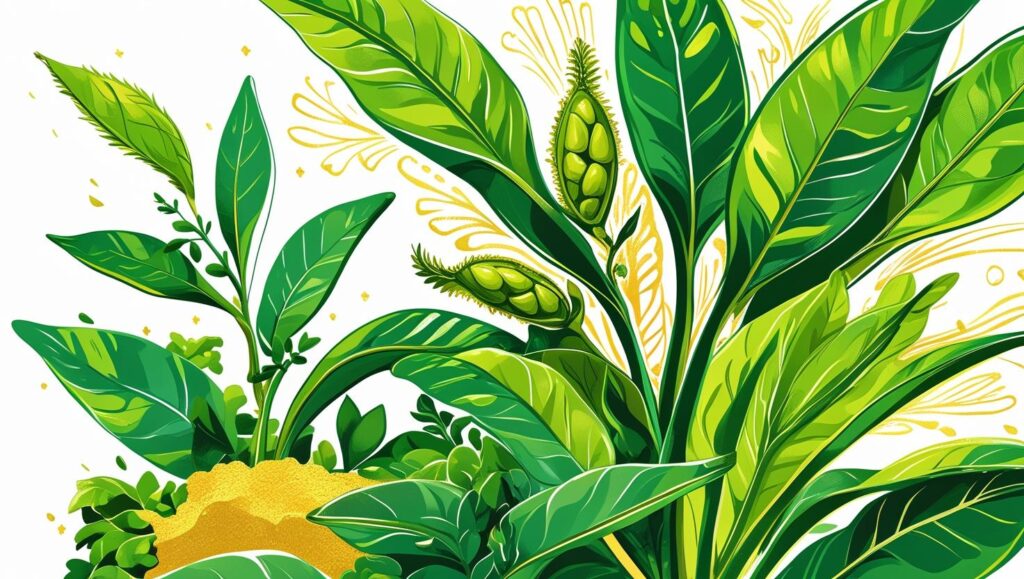
Who Should Use Caution?
- Pregnant women: May stimulate uterine contractions
- Those on blood thinners: Contains vitamin K
- Hypothyroid patients: High doses may interfere with medication
Recommended Dosages
- Powder: ½-1 tsp daily
- Capsules: 500-1000mg
- Fresh leaves: 1-2 cups in cooking
Pro Tip: Always choose organic, non-GMO moringa to avoid heavy metal contamination.
5. Frequently Asked Questions
Q: Can moringa replace my multivitamin?
A: While incredibly nutrient-dense, it shouldn’t fully replace a balanced multivitamin but can significantly reduce your supplementation needs.
Q: How does moringa compare to spirulina?
A: Both are superfoods, but moringa has more calcium and vitamin A, while spirulina offers more B12 and gamma-linolenic acid.
Q: Does cooking destroy moringa’s nutrients?
A: Light cooking preserves most nutrients. Add powder at the end of cooking or use fresh leaves in quick sautés.
Q: Where is the best place to buy quality moringa?
A: Look for USDA organic, third-party tested products from reputable brands like Kuli Kuli or Organic India.
Q: Can I grow moringa at home?
A: Yes! It thrives in warm climates (zones 9-11) and can be grown in pots in cooler areas.
Conclusion: Moringa – Nature’s Multivitamin
After examining the evidence, it’s clear moringa deserves its superfood status. With:
✅ More nutrients gram-for-gram than most foods
✅ Proven health benefits backed by science
✅ Versatile culinary applications
It’s not just another health fad—it’s a time-tested nutritional powerhouse. Whether you choose powder, capsules, or fresh leaves, incorporating moringa into your routine is one of the simplest ways to elevate your health naturally.
Final Recommendation: Start with ½ tsp daily in smoothies and gradually increase as your body adjusts. Within weeks, you’ll likely notice improved energy, digestion, and overall vitality.
Have you tried moringa? Share your experiences below!
Leave a Reply